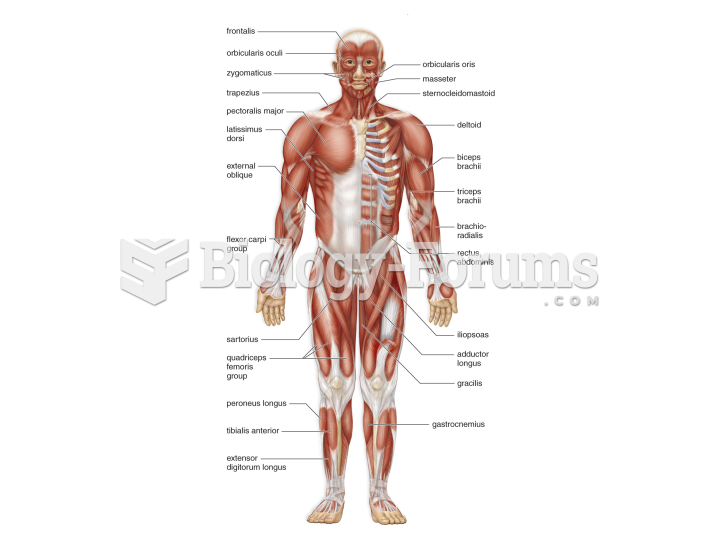|
|
|
During the twentieth century, a variant of the metric system was used in Russia and France in which the base unit of mass was the tonne. Instead of kilograms, this system used millitonnes (mt).
The types of cancer that alpha interferons are used to treat include hairy cell leukemia, melanoma, follicular non-Hodgkin's lymphoma, and AIDS-related Kaposi's sarcoma.
A strange skin disease referred to as Morgellons has occurred in the southern United States and in California. Symptoms include slowly healing sores, joint pain, persistent fatigue, and a sensation of things crawling through the skin. Another symptom is strange-looking, threadlike extrusions coming out of the skin.
Signs and symptoms of a drug overdose include losing consciousness, fever or sweating, breathing problems, abnormal pulse, and changes in skin color.
Many people have small pouches in their colons that bulge outward through weak spots. Each pouch is called a diverticulum. About 10% of Americans older than age 40 years have diverticulosis, which, when the pouches become infected or inflamed, is called diverticulitis. The main cause of diverticular disease is a low-fiber diet.
 An inguinal hernia. A portion of the small intestine is protruding through the abdominal muscles int
An inguinal hernia. A portion of the small intestine is protruding through the abdominal muscles int
 Stretch the extensor muscles with flexion at the wrist. Reposition the palm to face the table. Apply ...
Stretch the extensor muscles with flexion at the wrist. Reposition the palm to face the table. Apply ...
 Alternate kneading and sliding on the upper arm. Knead the upper arm muscles with a hand on each ...
Alternate kneading and sliding on the upper arm. Knead the upper arm muscles with a hand on each ...




